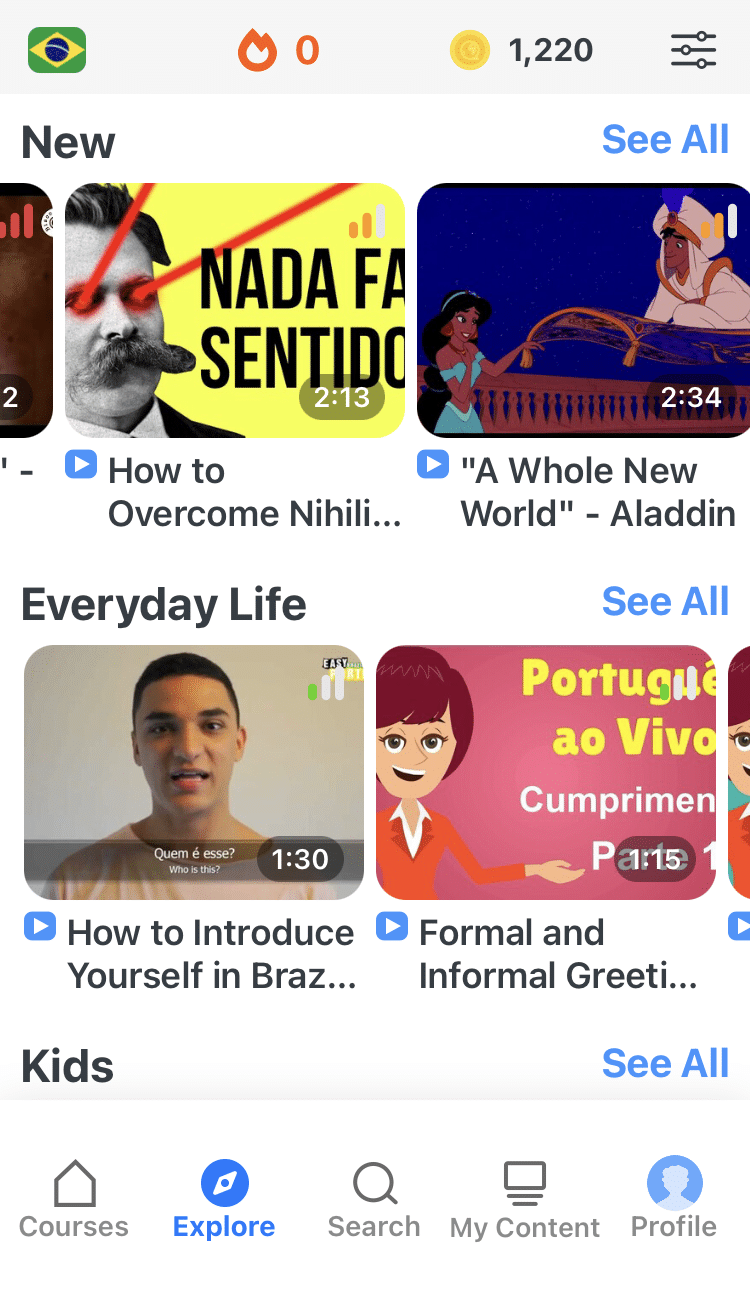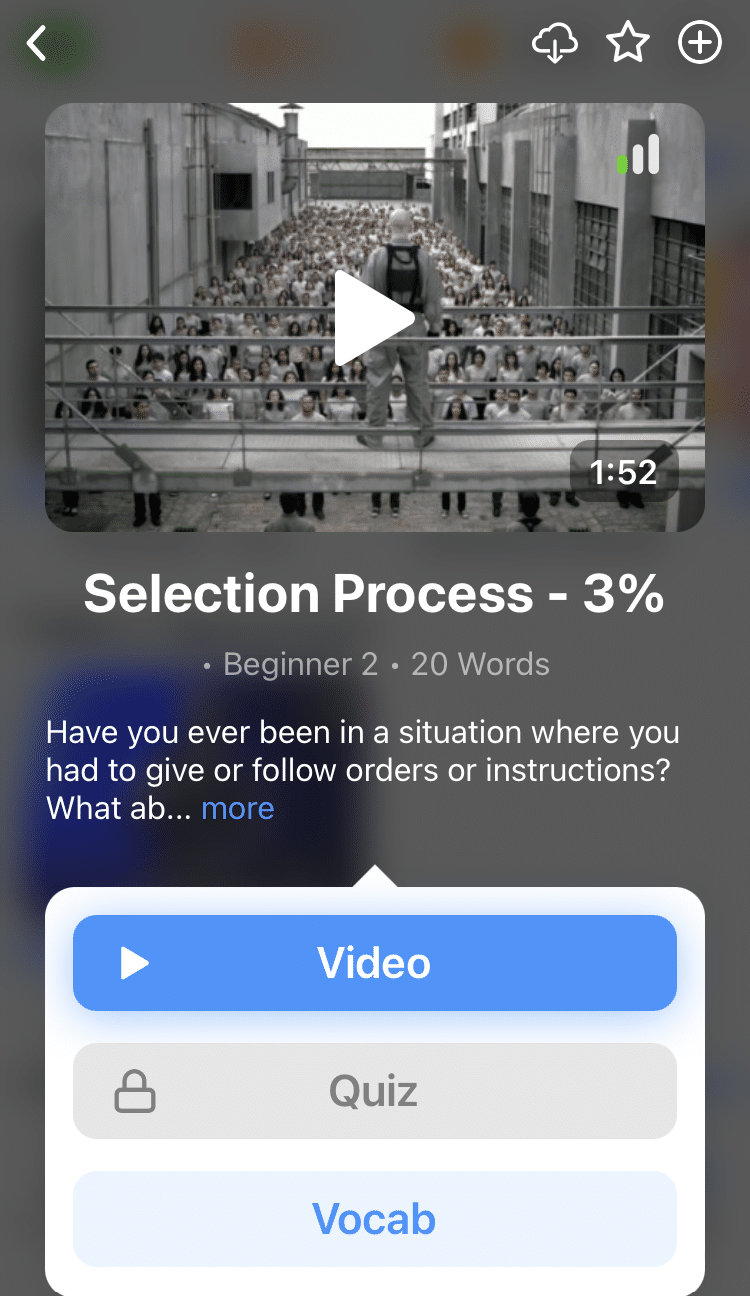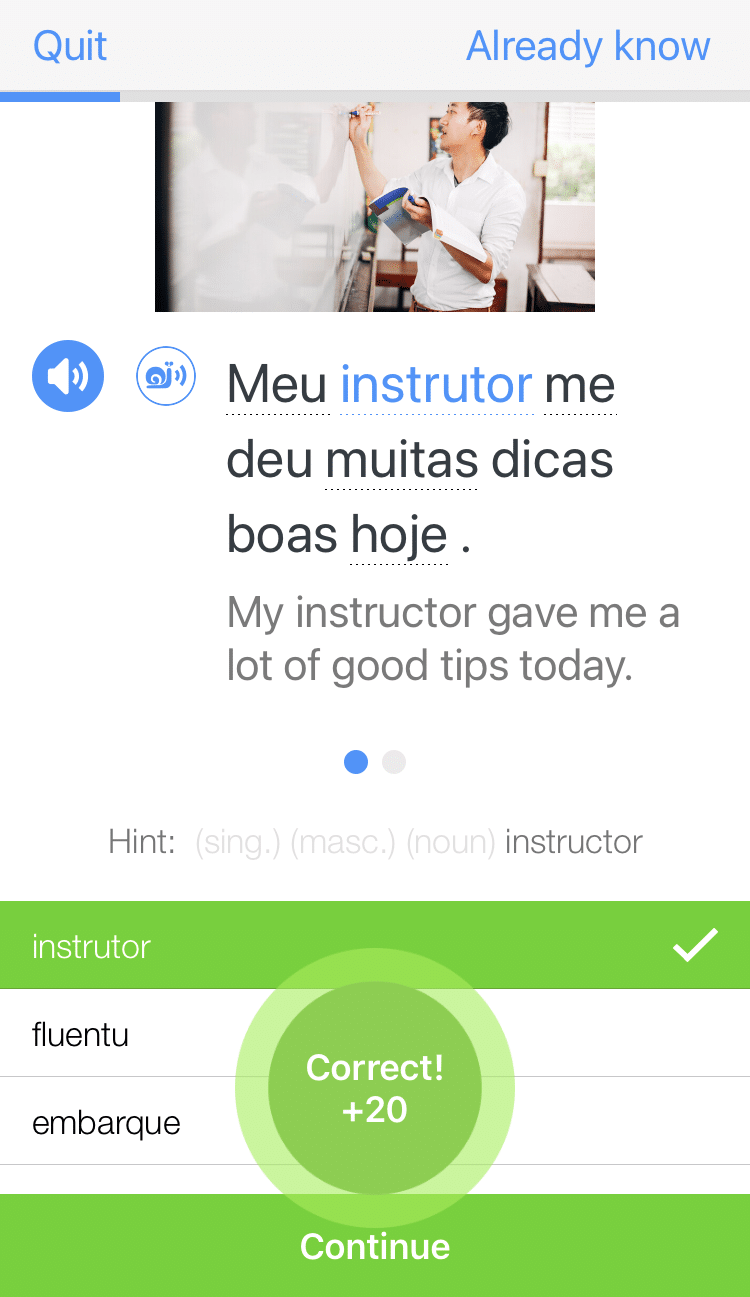
Best Portuguese Dictionary Apps for Your Smartphone
Need to look up an intriguing word you came across at a samba rock dance in São Paulo? Just snuggled up with a Portuguese book at home? You’re probably going to reach for your smartphone. But which of the many dictionary apps should you use?
In this post, I present my shortlist of which app is best for what purpose, and how Portuguese learners can take full advantage of them.
Contents
Download: This blog post is available as a convenient and portable PDF that you can take anywhere. Click here to get a copy. (Download)
1. WordReference
This app tops my list for a number of reasons.
I’m a lazy guy, and if I want to tell people that I can look up the word in this app and get not just the principal translation preguiçoso but also a huge variety of other translations for concepts like “lazy day,” “lazy/sloppy work,” “lazy eye” or a “lazy river.” A number of these come with examples of the words used in context.
The chief advantage of this app over others in my book is that at the bottom of such an entry you will also see user discussions of phrases containing the word “lazy.” It turns out others have already had questions about rather unusual or creative uses of the term, what they mean and how to translate them. Plus, if you don’t see your question answered there you can create a free account and ask yourself.
There seem to be plenty of smart translators lurking around the forum just itching to answer your strangest questions—in the past I’ve found this incredibly useful for arriving at an understanding of vulgar spoken Portuguese as well as some flowery song lyrics.
Also useful for Portuguese learners are the provided conjugations and the links to Google Image searches at the bottom of definitions. That’s a lot of info from one simple lookup; perfect for a guy like me.
As of this writing, this app only works when connected to the internet; the iOS and Android apps are basically just windows into the excellent WordReference.com website.
2. Google Translate
You probably already know this as a translation website, where you can type text to have it translated or speak into it for live translation.
My favorite use ever was taking a photo of a menu to better understand what sort of glorious seafood I was about to be served on a beach in Pernambuco.
Don’t, however, discount this as a dictionary app. If you look up a single word you’ll get a dictionary-style entry with a variety of translations (though without the contextual examples that WordReference provides). Google Translate is also great at predicting what you meant to type, if, say, your Portuguese spelling is not so hot.
You can save Portuguese and English to your device and use this offline; the only drawback is that voice recognition doesn’t work offline in iOS.
3. Linguee
This app is handiest when you have a phrase in Portuguese or English that you want to see how a great number translators have handled in the past.
For example, if you look up “laze around” you’ll discover a number of interesting ways that this was handled in Portuguese, depending on the context: descansar, deitar-se, relaxar, etc.
I’ve found that this app tends to be particularly useful for seeing how official Portuguese government bodies and terms tend to get translated into English and vice-versa. Still, it’s harvesting information from the wild Internet, so take any specific option with a big grain of salt.
The app does work offline, but only as a dictionary; it won’t give you this lovely array of actual translations in context unless you’re connected.
4. Portuguese Translator +
This app also works offline and gives basic translations, but it does so without providing context.
This is another sweet and simple app, and it includes some useful additional features such as pronunciations, verb conjugations and vocabulary quizzes for learners.
For a more comprehensive language learning app that includes a video dictionary, there’s FluentU.
FluentU takes authentic videos—like music videos, movie trailers, news and inspiring talks—and turns them into personalized language learning lessons.
You can try FluentU for free for 2 weeks. Click here to check out the website or download the iOS app or Android app.
Wherever and whenever your vexing Portuguese lexical issues strike, I hope you’re now ready to answer them.
Portuguese is a vast language, but you should now have easy access to understanding every piece of it—right in your pocket.
And One More Thing…
If you've made it this far that means you probably enjoy learning Portuguese with engaging material and will then love FluentU.
FluentU takes authentic videos—like music videos, movie trailers, news and inspiring talks—and turns them into personalized Portuguese lessons.
Other sites use scripted content. FluentU uses a natural approach that helps you ease into the Portuguese language and culture over time. You’ll learn Portuguese as it’s actually spoken by real people.
FluentU has a wide variety of videos, as you can see here:

FluentU brings native videos within reach with interactive transcripts. You can tap on any word to look it up instantly. Every definition has examples that have been written to help you understand how the word is used. If you see an interesting word you don’t know, you can add it to a vocab list.

Review a complete interactive transcript under the Dialogue tab, and find words and phrases listed under Vocab.

Learn all the vocabulary in any video with FluentU’s robust learning engine. Swipe left or right to see more examples of the word you’re on.

The best part is that FluentU keeps track of the vocabulary that you’re learning, and gives you extra practice with difficult words. It'll even remind you when it’s time to review what you’ve learned. Every learner has a truly personalized experience, even if they’re learning with the same video.
You can try FluentU for free for 2 weeks. Click here to check out the website or download the iOS app or Android app.







